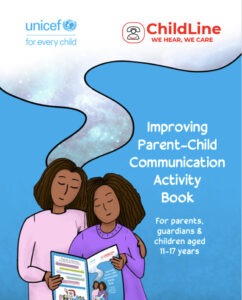Why you shouldn’t accuse your child of being selfish
Sometimes, out of impatience, frustration or anger, especially with children and teens, parents/guardians can let their emotions influence the language they use. This can be from shouting or yelling about their frustrations, to even using derogatory names and/or insults towards their child. It might not seem to be such a big deal at first, after all everyone gets angry and says things they don’t mean.
“Sticks and stones may break my bones but words can never hurt me”…right?
If you’re tired from a long day of work and your child throws a tantrum because you won’t play with them, it’s tempting to call them selfish. If you’ve spent a lot of money buying your teenage daughter new clothes and she says she has nothing to wear, it’s tempting to call her selfish.
In fact, children and teenagers really are selfish; it’s in their nature (at least for some time). Until about the age of three, children’s brains have not yet developed to understand the concept of empathy. They cannot yet grasp that other people have different thoughts, experiences, and beliefs than them. Even when this does develop, it takes years for an individual to properly learn to consider the feelings of others and to be able to compromise.
Of course, this does not mean that they should not be corrected or taught to be more understanding, but this can be done without emotional accusations. Calling your child selfish can place unnecessary guilt on their shoulders over something that is a natural part of growing up.
As someone who a child expects love and nurturing from, your words and opinions mean a lot, even if they say otherwise. From a young age, children develop their self-esteem and self-worth from the treatment and opinions of their family and close friends. Children who may be undergoing puberty may feel as if being called “selfish” is a description of who they are and not what they have done.
This lower perception of themselves, over time, can spiral into issues with mental health like low self-esteem, anxiety, depression, and even suicidal ideation.
What should you do?
If in the heat of an argument you ever find yourself name-calling or insulting your child, there’s nothing wrong with admitting that you made a mistake and apologizing. It does not make you weak and it does not mean that they got their way. Instead, it teaches them that they are worth respect and that, just like you are, they should be willing to apologize when they hurt others or are inconsiderate.
[/et_pb_text][/et_pb_column][/et_pb_row][/et_pb_section]






